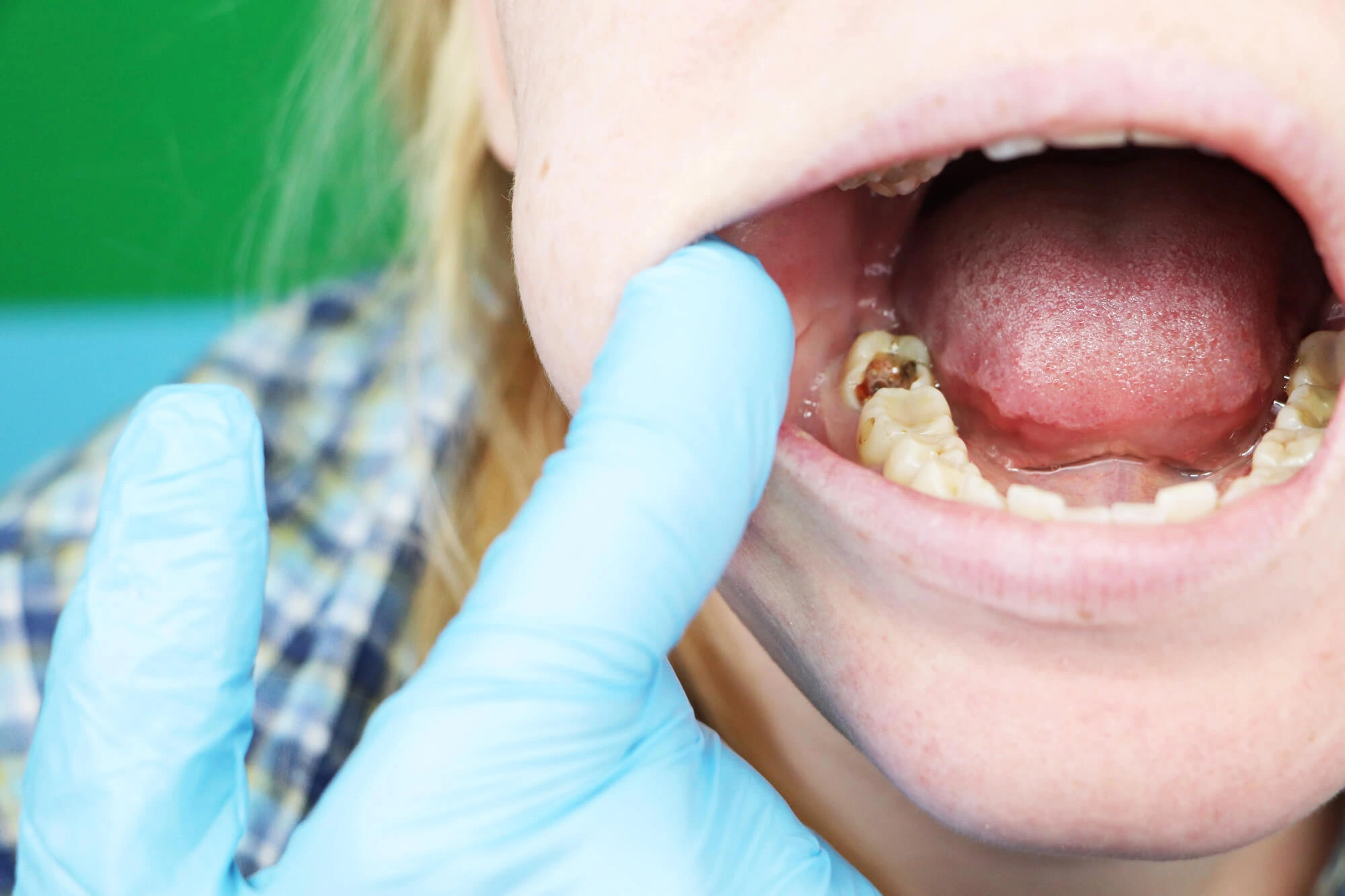How Quickly Do Cavities Develop?

Cavities don’t just happen overnight—but they can develop faster than you think. If you’re prone to cavities and find a new one has developed every time you visit a Haddonfield family dental office, you probably understand what we’re saying.
The duration of cavity development depends on several factors, including a person’s dietary and hygiene habits, as well as their natural genetics. By understanding these, you can be better prepared to stop them in their tracks—and keep your smile healthy for years to come.

What Is a Cavity?
A cavity is permanent damage to the tooth structure caused by acid-producing bacteria.
When food particles—especially sugars and starches—are left on the teeth, bacteria feed on them and release acid. This acid gradually wears down the enamel (the hard outer layer of your teeth), leading to decay.
Without treatment, this decay will continue to progress, eventually reaching the deeper areas of your teeth and causing pain. But how does decay progress?
The 5 Stages of Cavity Development
Cavities form in stages—and the earlier you catch them, the easier they are to treat (or even reverse!).
Stage 1: Demineralization (Within Weeks to Months)
This is the earliest stage of tooth decay, where acid starts to weaken the enamel. You may notice white spots on your teeth, but there’s no pain or visible hole yet. At this stage, maintaining good oral hygiene and using fluoride can often help reverse the damage.
Stage 2: Enamel Decay (A Few Months to a Year+)
If demineralization continues unchecked, it begins to erode the enamel. A small cavity (hole) may start to form. Still usually painless, this stage is often caught during regular dental checkups.
Stage 3: Dentin Decay (Months to Years)
Once the cavity reaches the dentin—the softer layer under the enamel—you may start to experience tooth sensitivity, especially to sweets or cold drinks. At this point, the cavity requires a dental filling.
Stage 4: Pulp Damage
Now, the decay reaches the nerve center of the tooth. You may feel persistent toothaches, inflammation, or even swelling. Root canal therapy may be needed to save the tooth.
Stage 5: Abscess
If left untreated, bacteria can cause an infection and form an abscess. This can lead to severe pain, fever, or swelling in the jaw—and may even threaten your overall health.
So… How Fast Can a Cavity Form?
The answer depends on several factors, including:
- Your Diet: Frequent snacking or sugary drinks lead to a higher cavity risk.
- Oral Hygiene Habits: Subpar brushing and skipping flossing allow plaque to build up in your smile, leading to decay.
- Saliva Flow: A dry mouth, or low saliva flow, makes it harder for your mouth to fight off bacteria, increasing the risk of decay.
- Your Enamel Strength: Sadly, even with the best oral hygiene, genetics play a big role.
Can You Reverse a Cavity?
Yes—but only in the earliest stage (demineralization). With daily brushing, fluoride toothpaste, and routine cleanings, your enamel can remineralize before a hole forms.
Once enamel is lost, though, the damage is permanent, and a filling or other dental treatment is required.

Worried About a Cavity? Don’t Wait, Contact a Haddonfield Family Dental Office
Cavities don’t get better on their own—but the sooner you act, the easier and more affordable the fix.
If it’s been a while since your last checkup, or you’re feeling tooth sensitivity, schedule a visit with Dental Arts of Haddonfield. Our compassionate team is here to help you and your family stay cavity-free, giving you peace of mind knowing your smile is in the best hands.

